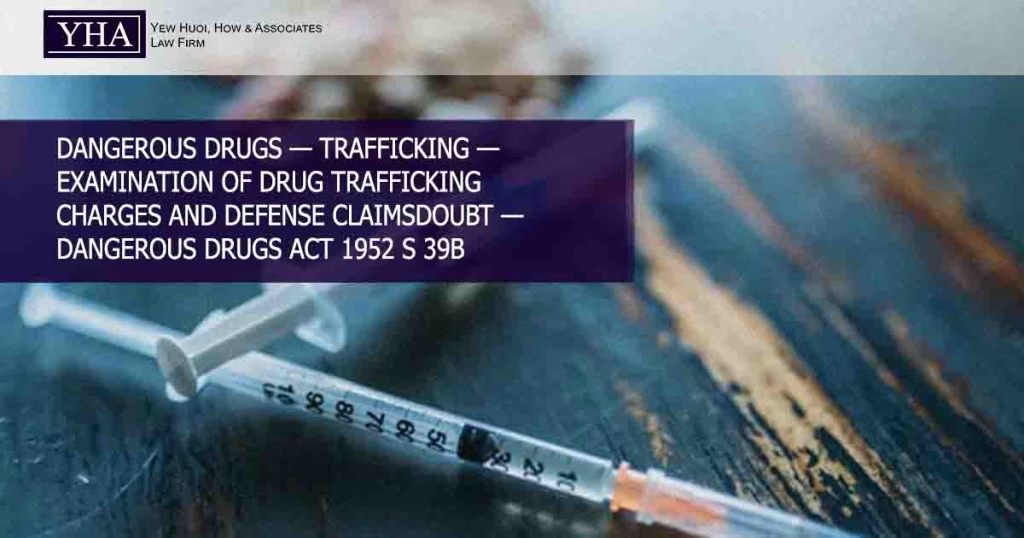Illustrative Scenario
X was caught with two slabs of plant material in his sling bag, which was later identified as cannabis. X’s defense was that he had no knowledge of the drugs in the bag and claimed that the sling bag did not belong to him. X stated that he picked up the bag from another person named Y.
Issues
- Whether the possession of the drugs was for the purpose of trafficking?
- Whether X’s statement and defense successfully raised a reasonable doubt in the prosecution’s case?
Legal Principles & Law
- Section 2 Dangerous Drugs Act 1952: Defines various acts related to dangerous drugs, including manufacturing, importing, exporting, keeping, concealing, buying, selling, giving, receiving, storing, administering, transporting, carrying, sending, delivering, procuring, supplying, or distributing any dangerous drug without authority under the Act or its regulations.
- Section 39B Trafficking in Dangerous Drugs:
- (1) No person shall, on his own behalf or on behalf of any other person, whether or not such other person is in Malaysia—
(a) Traffic in a dangerous drug;
(b) Offer to traffic in a dangerous drug; or
(c) Do or offer to do an act preparatory to or for the purpose of trafficking in a dangerous drug. - (2) Any person who contravenes any of the provisions of subsection (1) shall be guilty of an offence against this Act and shall be punished on conviction with death or imprisonment for life and shall, if he is not sentenced to death, be punished with whipping of not less than twelve strokes.
- (1) No person shall, on his own behalf or on behalf of any other person, whether or not such other person is in Malaysia—
- Section 8 Evidence Act 1950: Discusses conduct such as absconding or fleeing after the commission of an offence. However, evidence of mere absconding or flight is not a vital circumstance that can be considered to show that the absconder had a guilty mind.
Application and Sentencing
- The court applied the legal principles to the facts and determined that:
- The amount and manner of carrying the cannabis suggested an intent to traffic, as outlined in S.39B of the Dangerous Drugs Act 1952.
- X’s defense of lack of knowledge and ownership was insufficient to raise a reasonable doubt, consistent with S.8 of the Evidence Act 1950, which requires credible evidence to support such claims.
- Consequently, the court found X guilty of trafficking in dangerous drugs and sentenced him to the mandatory penalty of death by hanging.
Reference Cases
- Zulfikar V PP [2001] 1 SLR 633
- Warner v Metropolitan Police Commissioner [1969] 2 AC 256
- Tan Ah Tee & Anor v Public Prosecutor [1978-1979] SLR 211
- Wong Nam Loi v PP [1998] 1 CLJ 37
- Tunde Apatira & Ors v PP [2001] 1 CLJ 381

